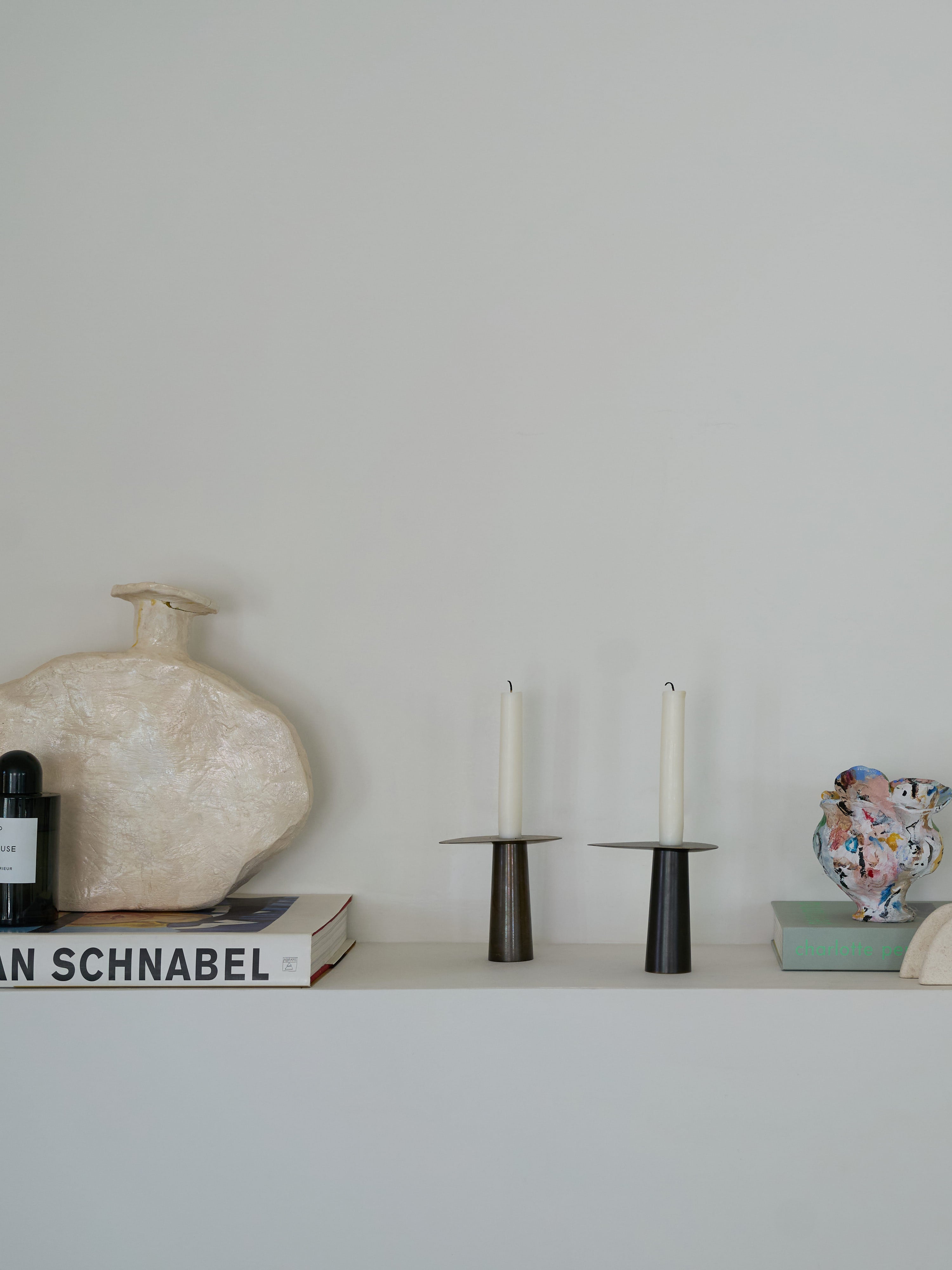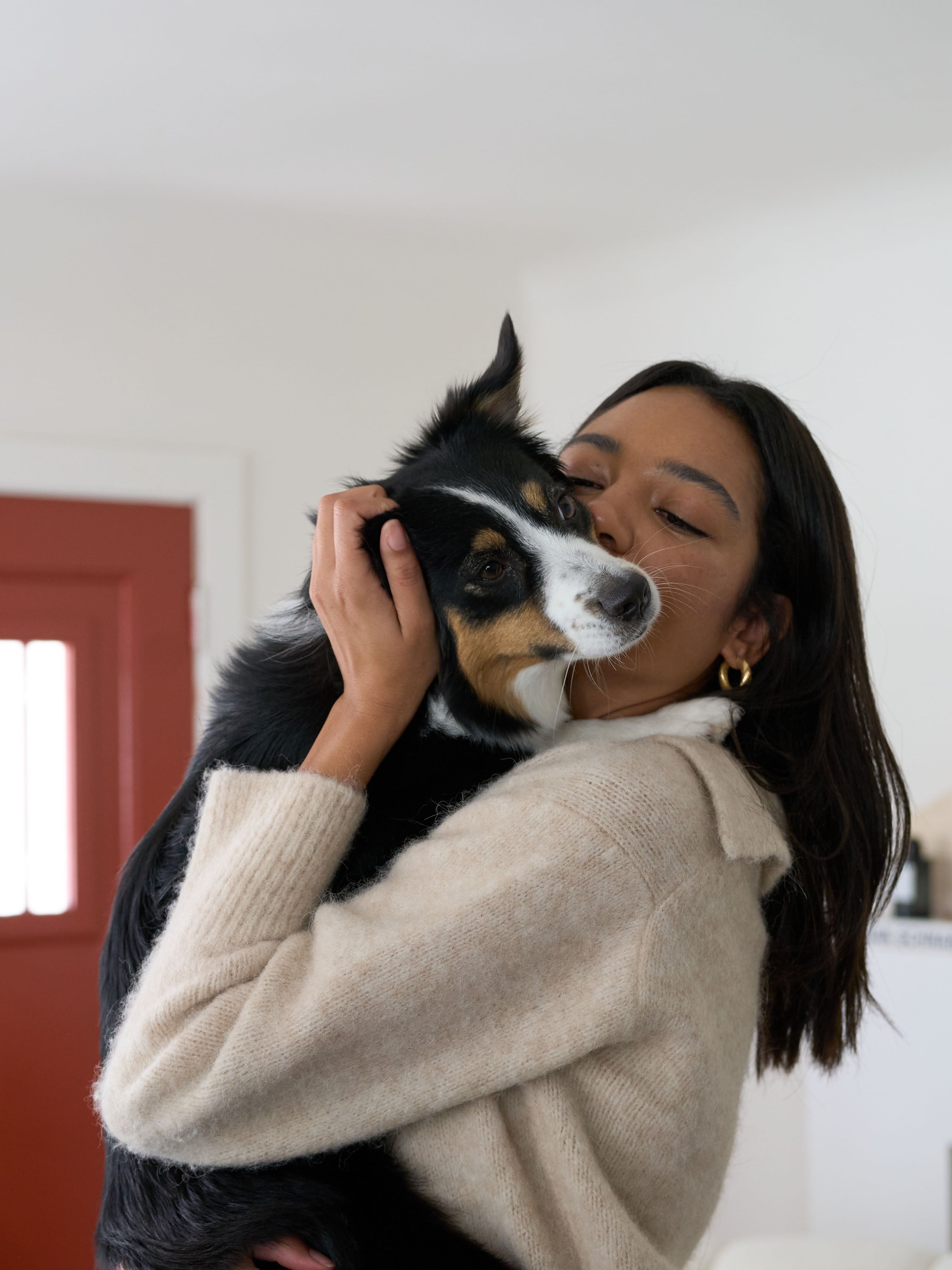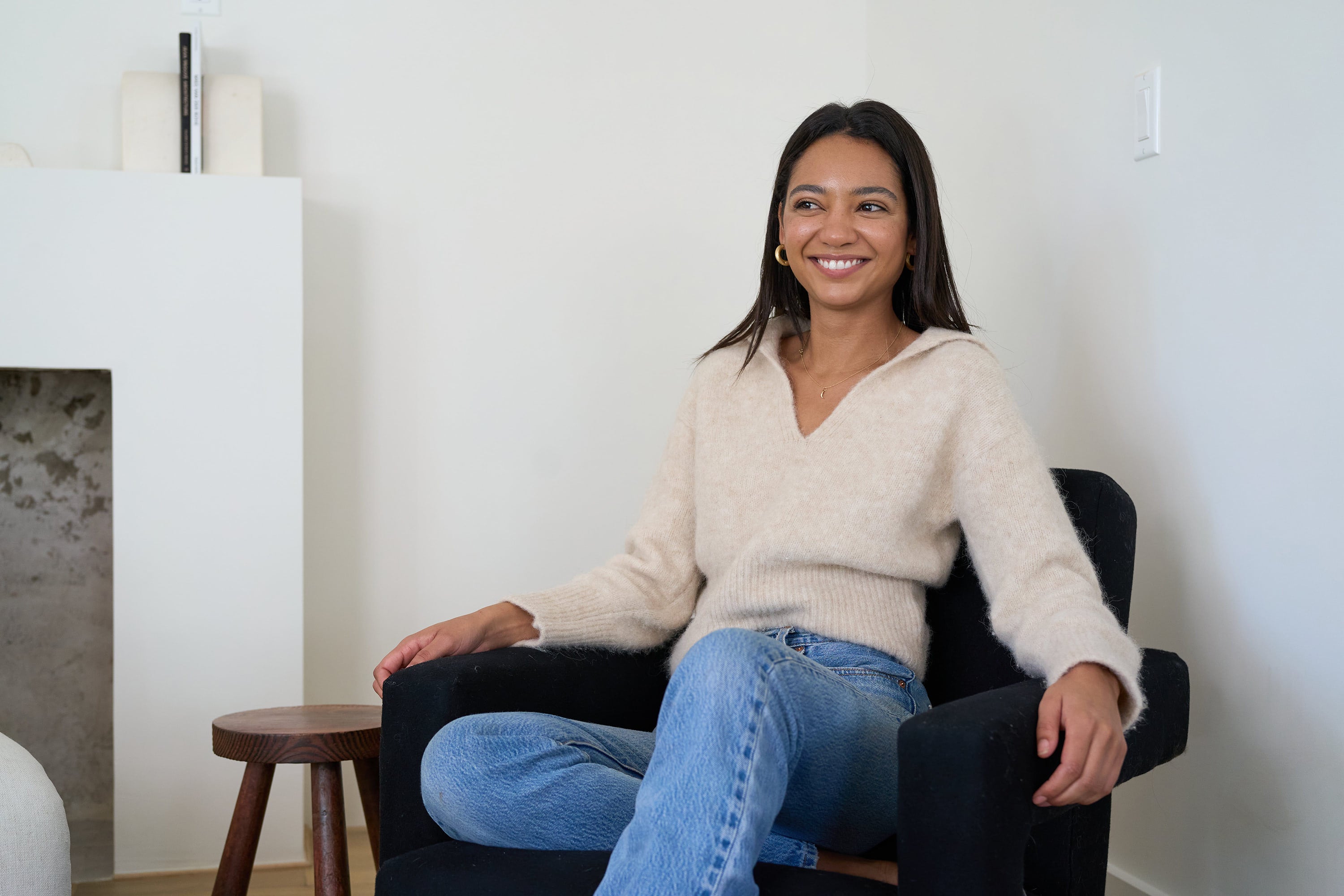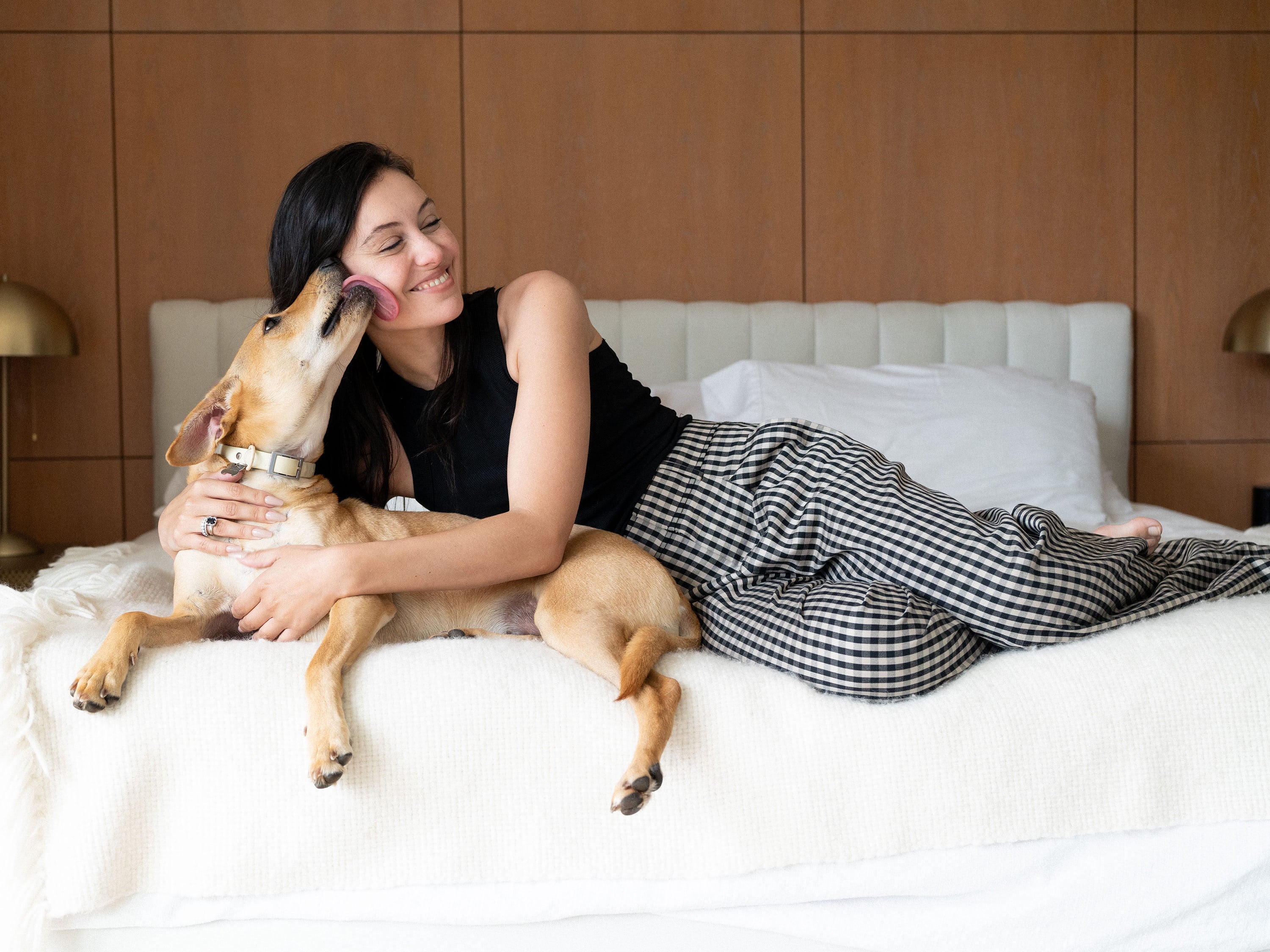The furniture designer and founder of Claude Home who believes you don't ever fully recover from an eating disorder, you have to work at it. Together, Maggie and Jayme chat about why she decided to become more forward-facing when it comes to promoting her business, the discomfort she feels around food and her body, and how her eating disorder stemmed from specific racial experiences.

I want to talk a little bit about Claude Home first. You've sourced vintage furniture for a long time. And now you're making custom furniture. So, how did you get to this place?
I started Claude Home kind of as a hobby. When I was 22 or 23, I was working in fashion under the editor of ID Magazine and had a bit of a mental breakdown. I was collecting a bunch of coasters and ashtrays, and my boyfriend at the time said get this out of the house; start one of those stupid Instagram accounts that everyone's doing. So, over time, I slowly built it and grew a following.
I learned a lot about furniture; I knew nothing about it. I didn't know one designer besides Crate and Barrel and IKEA. But just scrolling eBay, Instagram, and Pinterest, and reading a lot of books, I educated myself on the importance of designers and where a lot of references originate from.

How would you categorize your aesthetic?
Every day, it changes and everyone always asks me that, but I would categorize it as I want to create The Row clothing, but for furniture. I’m trying to get the price point down. But with The Row, everything is perfect and it’s tailored. Like a dining chair is simple, but it’s beautiful. The Row white T-shirts are really amazing and you can spot them from a mile away. So, I would categorize myself as the Olsen twins.
I’m here for it. You said you had a mental breakdown. So can you talk to me a little bit about that?
I dropped out of high school when I was 18, moved to New York, and didn’t have a clue about what I wanted to do. But I was very driven and knew I wanted to work in fashion. I wanted to do styling, but I didn’t know the name of that job. So, I got an internship and started when I was 18 or 19. It was a really tough internship. It was not paid, but I was able to climb the ladder really quickly and got an amazing assistant job and was titled the super intern.
My dream was to work for this one stylist, who’s amazing and massive, and I got the job working with him at 21. Nobody’s had that job in their 20’s and I’ve always had the mentality that I can do it. And even if it’s going to kill me, we can get it done. But I drove myself into a grave and was working from 7 a.m. to around 4 a.m. consistently and traveling a lot. I was in a bad place and was drinking, partying, and not sleeping. My mom saw me and said you have to quit your job and move out. And so I went home for a little bit.
In the past year, I would say with Claude Home, you’re more forward-facing. What was the thought process behind that? And also, do you feel comfortable in that position?
I hate it. I don’t feel comfortable. But the thought process stemmed from a few different things. During the protest with George Floyd and Breonna Taylor, I realized that a lot of the reason that I was hiding my face behind Claude was because I was embarrassed that I was very young running this company. And then also because I was Black. And I always had this feeling that if people knew I was Black, they weren’t going to appreciate my taste, or they weren’t going to like me. It was always something that I had hidden my entire life.
One day, during the protest, I realized this is was why I hadn’t posted my face. I made a post on Instagram explaining this to people. It’s a really weird thought process that I’m not going to post my photo on Instagram because people aren’t going to want to buy a couch because I’m Black. And I learned that a lot of companies and a lot of business owners experience the same issue and felt the same way. It was a really scary thing. The first time I posted a photo, I was really freaked out, but got a lot of good feedback. Everyone was so nice and so many people said, I cannot believe you would ever think that. It is still scary, but I’m not as scared.
During the protests, some people’s mentality really did change and people did educate themselves and I’ve seen a massive difference. I do feel a lot with companies when I’m doing sponsored posts or ads that I’m the token Black role. Danielle Prescod just wrote a book with that title. I haven’t read it, but with the title, I know exactly what it’s about. I have always felt that way, which is fine. But I’ve also recognized and have been told by many people I’m the whitest Black girl they’ve ever met. Sometimes with brands, I’m the only Black one out of the eight other influencers or whoever has been chosen for a campaign. It’s because I’m a very white-passing Black person, and I fit their image more than somebody with naturally curly hair or darker skin does. I find it annoying. It’s something that bothers me and it’s something I’m aware of.
Well, I'm glad that you are showing your face more. Speaking of being more forward-facing and if you're comfortable sharing more, when we first met, you talked about having an eating disorder. Especially with taking photos, how does that impact your mental health and what you've gone through?
I have a very strange relationship with food. It goes back to when I was seven years old. My mom would challenge me to go on a three-day fast and just drink water. I was always given calorie counting books and told not to lose weight, but to be healthy. But healthy to her was starving yourself and exercising a couple of hours a day. So I've always had that mentality ingrained in my brain that food is gross and watching people eat is gross. And people watching me eat is gross.
I'm very self-conscious about posting food on Instagram. And if I go on a date with a guy, I don't usually eat. But I get anxious, especially when a guy is watching me eat; it's just unbearable.
A lot of my eating disorder stemmed from racial things growing up. I went to a very white school in San Diego, a Christian religious school. And I was, again, the token Black girl, so it was very much about how can I make myself as white as possible. There's a stigma that Black people have a big ass or hips, curves, whatever. And I always thought I needed to make sure I didn't have any of that. It's always been about starving myself and all these weird diet tricks I would do.
When my stepdad passed when I was 14, my mom went missing mentally. She would not speak to me and was so depressed. I wanted attention so badly from her. I would say I'm depressed, I need help and she wouldn't acknowledge me. She'd always say there are kids in Africa that are starving; you have nothing to be sad about. So again, I felt like I needed to get as sick as possible and then maybe she'll notice. But that put me in a really dark place. I was already extremely depressed, I wasn't eating, and my body was melting away. I had heart issues and I finally got her attention. But it's still a battle between us. She tells me to just eat, you've wasted my money. Fix it; it's your fault. You have anxiety, it's your fault, you're depressed. So we've had a weird and hard relationship.

Are you living in that space? How have you helped yourself? Do you have feel as if there’s been an improvement?
I think it’s always going to be a struggle. I went to a few eating disorder clinics, hospitals, and residential places. If you don’t want to get better, you’re not going to get better. It’s the same thing with an alcoholic or drug addict. You have to really want it. I still struggle to this day; I don’t like eating in front of people. Food just really freaks me out. And my weight fluctuates a lot depending on the day or month, but the only thing that has ever helped my brain is to say that your body wants to be a certain way. I can lose 15 pounds, but you can’t maintain it, it’s not possible. And also, being an adult, I had to work and you can’t work when you’re starving. You have to pay bills and I think about do I really want this hospital bill if I get really sick. So it’s this realization that it’s not possible to live this way. But I still struggle. I have my moments. It’s more of a habit than really trying to lose weight.
I have my own eating situation, the way food impacts me, and the shame that I feel from it. So, while I didn’t have the same experience as you, I can relate in the sense that maybe I’m better now and I’m really aware of it. But it’s really hard for it to just disappear.
Before I go on a date, I always scan the menu, and I know exactly what I’m going to order. My friends don’t do that. I’ll do this four days in advance where I’m planning what I’m going to eat. I would love for that to go away, I just don’t think it will. I don’t know if it’s the best thinking method, but there are some things you just have. You have to figure out how to manage them and be the healthiest version you can be. When people say they’re recovered, I ask what does recovery mean? I have recovered. I’m at a healthy weight now, but mentally, I don’t think you ever recover.
Yeah, I agree. I don’t think you ever fully recover. I’m working with an eating disorder therapist right now. Sometimes, I almost feel as if I’ve gotten worse in some ways because of the awareness that I have. She keeps talking about my setpoint weight, that this is where my body wants to be. And, of course, for me, that’s not good enough. But I don’t know if that will ever go away.
I don’t think it does. I have friends who are three years recovered. But did they just wake up one day and think you’re fixed? Because if so, tell me more.
What would you tell young Maggie in regard to your mental health?
It doesn’t fully ever get better. You do have to work at it. Don’t drink because that really makes you crazy. I listened to something the other day that said whenever you’re in a moment where this feels like the worst thing you’ve experienced, this is the end of your life, you probably have had 10 of those moments in the last three months and you got over them. You were fine. This, too, shall pass. It’s going to be okay.

